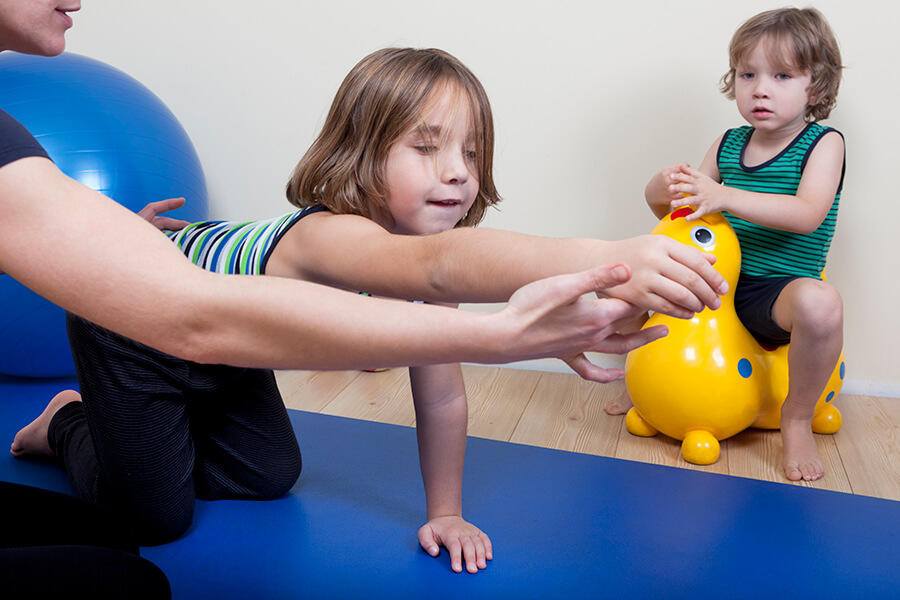Lansing Pediatric Rehabilitation Physical Therapists specialize in helping develop proper body mechanics, strength and endurance in children from birth to 18 years of age.
Physical therapist will work with your child in their hospital room. A comprehensive assessment will be completed on your child including range of motion, strength, transfer ability, ability to walk, gross motor coordination and equipment needs. Your child’s therapist will assess and develop a treatment plan that is specific to the needs of your child using evidence based techniques. Your child’s therapist will work closely with your family and the entire health care team to ensure a safe return home.
Developmental Treatment
Use of therapeutic techniques and caregiver education to promote the natural progression of development. Your child’s therapist will use facilitation, positioning and play to promote your child’s ability to progress through their normal developmental stages. All Caregivers will be educated on activities that can be completed at home to assist in development and independence.
Transfer Training
As soon as your child’s physician has decided that it is safe, it is very important that your child starts sitting up on the edge of the bed or transferring out of bed to a chair. Your child’s therapist can work with you to ensure that your child reaches their max potential while keeping your child safe. Your child’s therapist can also share tips about keeping yourself safe as you are trying to assist your child with these transfers. Equipment may be recommended by your therapist to provide a safer environment for your child.
Ambulation
Your child may need assistance with walking while in the hospital. The physical therapist may recommend equipment to provide a safe way for your child to move around. This equipment may consist of a walker, wheelchair, crutches or cane. The therapists may work with your child to teach compensatory strategies or to facilitate improved walking. It will be important for you to work with your child’s therapist so that you can assist your child with walking when your therapist is not present in the room.
Family/Caregiver education and HEP development
Family and caregiver education is important for your child to have a safe discharge home. Your child may have new complexities that change how they will move at home or add complexity to your ability to keep your child safe. Many children need to continue some portion of their therapy when they leave the hospital. A home exercise program will be taught to your child and all involved caregivers. This home exercise program may include daily activities, stretches, exercises, strengthening and many other activities. It is important that both your child and family members learn the home exercise program for greater success.
Coma Stimulation
Your physical therapist may provide your child with stimulation and range of motion while they remain in a coma. Your child’s therapist will come to your child’s room and provide range of motion to various joints. A specific set of stimulation techniques in a controlled manner may be used on your child to attempt to elicit a response from your child. It is important that after coma stimulation activities your child receives a proper rest break with dimmed lights in a quiet atmosphere. This stimulation will improve your child’s ability to regain function later in their therapy journey.
Safety Seat
Your child may require a specialized car seat for transportation in your vehicle. A certified child passenger safety seat therapist will evaluate your child and provide you with a specialized car seat if required. Your child’s therapist will provide recommendations regarding when your child can return to their car seat. You may borrow the specialized car seat until your child is finished and then return to the outpatient Rehab Department in the Professional building.



